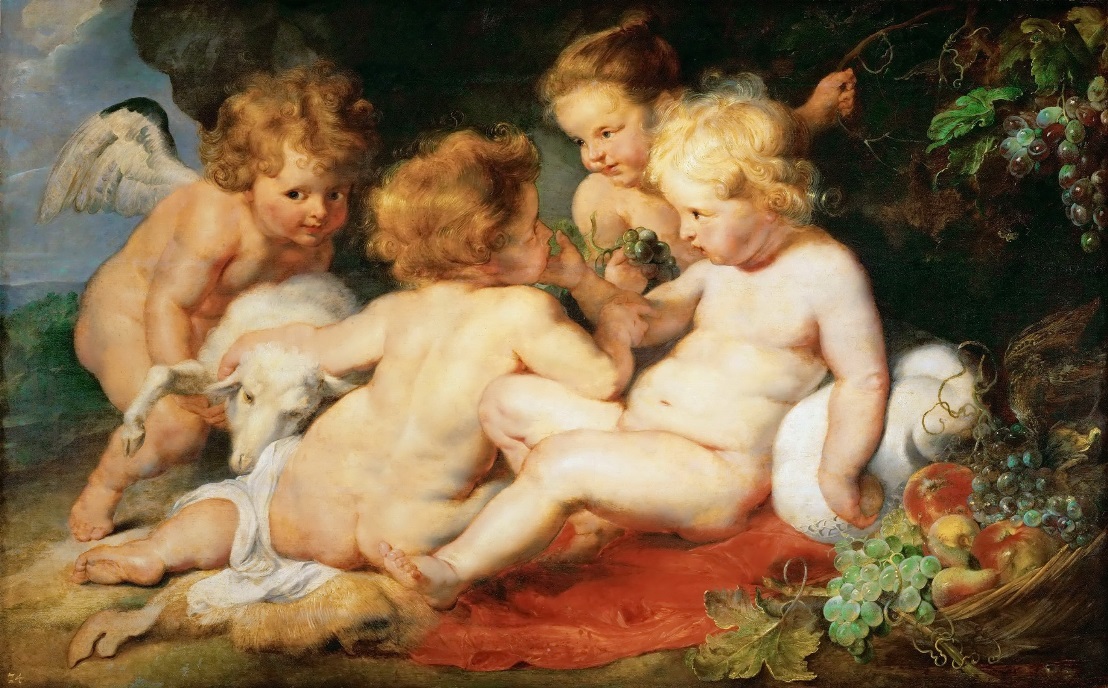Ode on a Children’s Cemetery Plot
1.
Behind the soul-gorged cemetery ground,
We discovered a plot of yet more dead,
A trim, verdant patch cradled all around
By a low brick wall, like a toddler’s bed.
Sunken in the grassy earth, broken lines,
Glossy black, marked where all the children slept.
Tiny toys and small flower bouquets stood
Among the sunlit stones, saddening shrines
Left by the hollowed hearts that prayed and wept,
Doubtful life could go on, doubtful it should.
2.
We stepped softly around the little graves,
Abstractly sharing the parents’ sorrows.
I considered how a human behaves
When tragedy destroys the world he knows—
What happens to a faith in Just power
When logic fades and chaos seems to reign?
Each grim gravestone whispered deep words of doubt,
Yet such uncertainty did not flower
Among these markers of parental pain.
The monuments’ themes were rather devout.
3.
As I began to read the mournful words
Etched in stark white upon the sable stone,
Faith and hope seemed the guardian shepherds
Of their souls: They did not face grief alone.
One young boy, Wyatt, died when he was four,
Another, Alexa, lived half as long;
Other kids died on the date of their birth.
How were the parents not ripped to their core?
How could they survive? How did they stay strong?
Eyes fixed on Heaven don’t plunge through the Earth.
4.
One gravestone drew me more than all others.
Like many, it housed an oval image
Of the departed child, but the colors
Were brownish-red, like autumn foliage.
It was an ultrasound of their dead child,
Framed by angels on an ebony face.
This fetal photo shined forth like the moon
At night! Oh, how through shut lids he beguiled
Me with his eyes! What expression of Grace
Could be found in life departed so soon?
5.
We view random pain as a tragedy,
But chosen pain as a sacred freedom.
This unexplainable loss most moved me
Because, despite what their lives had become,
The seismic collapse of the world they knew,
The parents grasped hope like an ancient jewel,
Not rejecting—but embracing—their God.
The epitaph proved that their faith held true.
“Lord, we give you our Littlest Angel,”
Read the words shining proudly from the sod.
6.
The feelings hit me like a burst of air
As I imagined myself kneeling here,
Tracing the etchings of a name with care—
My own son’s name. How would I persevere?
In a world comprised of mere meat and blood,
I would seek a reunion with the dust.
But these bedecked stones show that any test
From a grievous loss to a swollen flood,
Can be passed if we trust the plan is Just;
Beyond the veil our spirits will find rest.
7.
So I praise you, child’s cemetery plot!
Though your dark stones stand silent and mournful,
The attuned soul hears words the ears cannot.
There is a realm of spirit and angel
Beyond the seeming chaos of this life.
It cradles us with its firm, earthen palm
Till the time inside these soul sacks is done,
And we enter Forever, free from strife.
Nursery of the dead, you are a balm
For my faith, a lasting salve in the sun!
Crosses
“Beautification” is the word
When Chinese behead their churches;
Repression can maim the Body:
In the East, they’re purging crosses.
“Submission” is what zealots claim
When their swords are struck like axes;
Destruction brings the past to mind:
In the sands, they’re sacking crosses.
“Education” is what we know
When doubts sterilize our Houses;
Skepticism scalps the spirit:
In the West, we’re junking crosses.
“Hope” is the war-like word I shout
When I’m disarmed by these dirges;
Salvation can revive the blood:
In my soul, I’m lifting crosses.
Free Speech
I had learned that all speech was free,
But I was charged for what I said.
Since it was a nominal fee,
I lost no sleep at night in bed.
Yet soon the charges had doubled
For the ideas I shared before.
I felt just a slight bit troubled,
Inconvenienced but little more.
I could speak my mind, after all,
So I had no cause for concern;
The charges still were rather small,
The price of a life postmodern.
Then my ideas were illegal,
Though just a misdemeanor crime.
It was not completely awful—
A mere wrist slap and no jail time.
But then my words sent me to jail
(Just in a holding cell, of course).
They said if I changed not my tale,
They would respond with greater force.
I doubted these folks would be cruel,
As they seemed the tolerant sort.
Yet I knew I had been a fool
When they condemned my heart in court.
They threw me in a narrow cell
With propaganda tracts to read.
These informed me all would be well
If I embraced another creed.
A worship of inclusiveness
Would liberate me from this state,
But if I put up any fuss,
They would destroy me with their hate.
Thus, my words, which had once been free,
Now led to my freedom stripped.
I could stand for integrity,
Or recite from their pious script.
So I scattered my words away,
Like swarming gnats around my head,
But then I learned I’d have to stay
Because the truth had changed, they said.
What yesterday had been a sin
Was viewed in a different light;
My spirit plunged in a tailspin—
The wrong before was now deemed right!
Ron L. Hodges teaches English at the highly-regarded Oxford Academy High School in Cypress, California. His poetry has appeared in various publications, including The Society of Classical Poets 2015 Journal.
Featured Image: “Christ and John the Baptist as children and two angels” by Peter Paul Rubens















I too missed this poem first time round – wonderful – so evocative and controlled the language; this is great stuff in the classical mould.